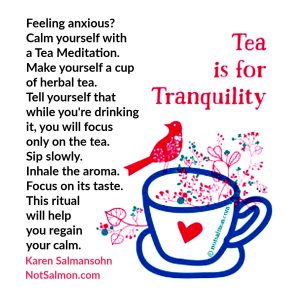 Holistic nutrition is often described as a multifaceted approach to feeding the body the fuel it needs to enjoy optimal physical and mental health.
Holistic nutrition is often described as a multifaceted approach to feeding the body the fuel it needs to enjoy optimal physical and mental health.
However, at its heart is customization—catering one’s diet to one’s individual physical and mental needs.
Although a Mediterranean diet is touted as an ideal heart- and brain-healthy regimen, a person can have allergies, deficiencies, and other issues that can make a bespoke diet necessary.
If you are interested in feeding your body the fuel it really needs, the following strategies may be useful.
Learning to Recognize and Regulate Your Emotions
As recognized by the American Psychological Association, a large percentage of adults overeat or consume unhealthy foods because of stress. They may also skip meals, binge-eating later in the day because of hunger or cravings.
If you want a healthy relationship with food you should…
- identify your emotions
- find a healthy way to process them
- battle stress proactively
There’s a quote that gets repeated again and again on the internet: “Health is about more than what you’re eating. It’s what you’re thinking, saying, and believing.” Meaning?
You need to embrace a holistic approach to nutrition!
With this in mind, I created my therapist recommended digital course: Stop Emotional Eating – with lots of holistic nutrition tools and psychological techniques to re-pattern your thoughts and habits around food.
As you might already know, I am a bestselling wellness author with about 2 million books sold globally.
I’m passionate about sharing insights and strategies to help people to be happier and healthier – which is why I wrote this article on holistic nutrition.
I believe that once you understand the specific reasons why you overeat, you can start approaching food as the powerful fuel it is.
You can additionally aim to battle stress proactively through holistic, mindful means such as yoga, meditation, and controlled breathing.
If you think you may have moderate or severe depression or anxiety, then a professional therapist can help diagnose and treat your condition. They may recommend one of many gold-standard therapies, such as cognitive-behavioral therapy.
Having a Nutritional Panel Done
Because holistic eating involves a personalized approach to one’s diet, having a nutritional panel can be useful if you have allergies, intolerances, or deficiencies. In a typical nutritional panel, various tests are conducted, including a complete blood count, Iron, Vitamin B12, Vitamin D, Vitamin C, Zinc, and more.
A clinical dietician may also recommend testing for conditions like hypothyroidism, which can make you gain weight and feel tired and depressed owing to an underactive thyroid. A nutritional panel is a vital source of information you can use to create a bespoke nutritional plan.
Embracing the Healing Power of Superfoods like Tea
 Some superfoods can help tackle specific health issues and promote a generally healthier state. Depending on your needs, your health provider may recommend foods like chia seeds, blueberries or some types of tea, to boost antioxidant levels in your body.
Some superfoods can help tackle specific health issues and promote a generally healthier state. Depending on your needs, your health provider may recommend foods like chia seeds, blueberries or some types of tea, to boost antioxidant levels in your body.
When it comes to tea, for instance, black tea is known for its high antioxidant quotient. This can potentially help boost heart health, lower LDL (‘bad’) cholesterol, and reduce the risk of some types of cancer.
Another tea that is often recommended is green tea.
It has been found in numerous studies to…
- promote skin cell rejuvenation
- fight allergies
- improve memory,
- boost the production of detoxifying enzymes
- reduce the risk of heart disease
- protect the brain against Parkinson’s disease
- and more
There are various types of tea with specific health benefits. So if you are a tea drinker, aim to prioritize those that can help you achieve your nutritional goals.
General Tenets of Holistic Eating
As mentioned, a holistic diet is by its very nature, a personalized one. However, it does embrace a number of important concepts.
These include…
- opting for whole foods instead of refined ones
- embracing fiber-rich foods like fruits and vegetables (which can boost your digestive system and your gut microbiome)
Whole foods can help keep blood sugar levels stable.
 These types of foods will help you to manage the need to binge when you experience a glucose slump.
These types of foods will help you to manage the need to binge when you experience a glucose slump.
Staying hydrated is also important since water has various important roles to play, including…
- preventing infections
- improving your sleep quality
- boosting mood
- bringing vital nutrients to your cells
Holistic eating additionally involves reducing ingredients like salt and sugar, which can cause a wide range of health issues when consumed regularly or in large amounts.
Finally, holistic nutrition embraces the idea of eating healthy portions of meals to avoid stressing your digestive system, experiencing GERD (or acid reflux) or other painful or uncomfortable diseases. It can also help you enjoy good quality sleep.
Holistic eating is all about feeding your body the diet it needs. If you want to discover if you have any deficiencies, allergies, or intolerances, explore doing nutritional panel. It is also vital to understand the connection between your mind and body.
If you are stressed, anxious, or depressed, try not to turn to food to comfort yourself. After all, emotional eating can potentially do damage to your physical and mental health.
Get Support To Stop Emotional Eating
Explore my therapist recommended digital course: Stop Emotional Eating.
P.S. Before you zip off to your next Internet pit stop, check out these 2 game changers below - that could dramatically upscale your life.
1. Check Out My Book On Enjoying A Well-Lived Life: It’s called "Your To Die For Life: How to Maximize Joy and Minimize Regret Before Your Time Runs Out." Think of it as your life’s manual to cranking up the volume on joy, meaning, and connection. Learn more here.
2. Life Review Therapy - What if you could get a clear picture of where you are versus where you want to be, and find out exactly why you’re not there yet? That’s what Life Review Therapy is all about.. If you’re serious about transforming your life, let’s talk. Learn more HERE.
Think happier. Think calmer.
Think about subscribing for free weekly tools here.
No SPAM, ever! Read the Privacy Policy for more information.
One last step!
Please go to your inbox and click the confirmation link we just emailed you so you can start to get your free weekly NotSalmon Happiness Tools! Plus, you’ll immediately receive a chunklette of Karen’s bestselling Bounce Back Book!


 Holistic nutrition is often described as a multifaceted approach to feeding the body the fuel it needs to enjoy optimal physical and mental health.
Holistic nutrition is often described as a multifaceted approach to feeding the body the fuel it needs to enjoy optimal physical and mental health. Some superfoods can help tackle specific health issues and promote a generally healthier state. Depending on your needs, your health provider may recommend foods like chia seeds, blueberries or
Some superfoods can help tackle specific health issues and promote a generally healthier state. Depending on your needs, your health provider may recommend foods like chia seeds, blueberries or  These types of foods will help you to manage the need to binge when you experience a glucose slump.
These types of foods will help you to manage the need to binge when you experience a glucose slump.